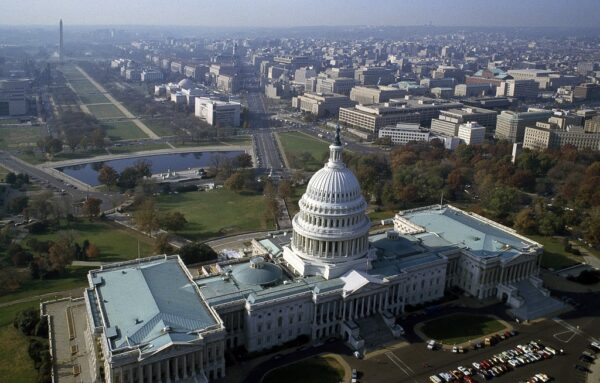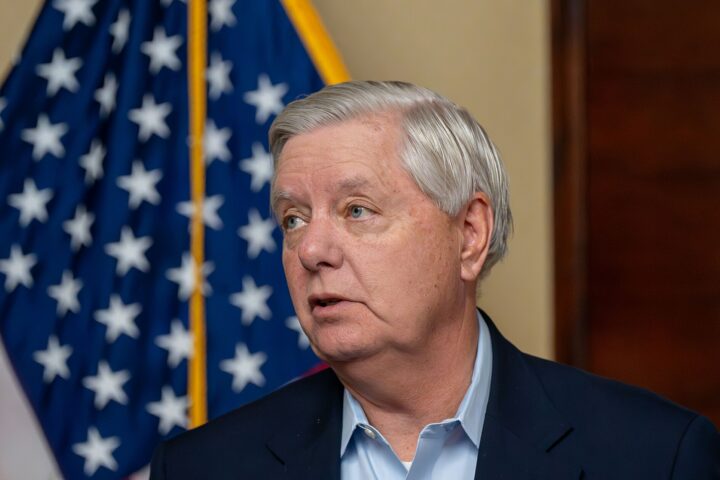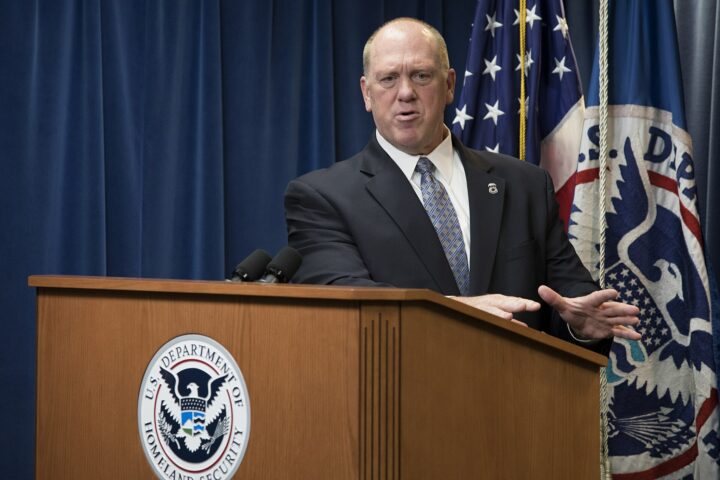The Senate voted this week to block President Donald Trump’s use of emergency powers to impose sweeping tariffs on countries around the world, marking the third time lawmakers have attempted to roll back his aggressive trade agenda.
The resolution, authored by Sen. Ron Wyden, Democrat of Oregon, seeks to terminate the president’s declaration under the International Emergency Economic Powers Act, which Trump invoked earlier this year to establish a base 10 percent tariff on foreign imports.
Trump justified the move by citing what he called a “national emergency arising from conditions reflected in large and persistent annual U.S. goods trade deficits.”
The vote represented a rare moment of bipartisan pushback against the White House. A small group of Republicans joined Democrats in opposing the tariffs, reflecting growing unease within the GOP about using emergency powers to dictate trade policy. Senate Minority Leader Mitch McConnell of Kentucky, who missed an earlier vote on the measure, joined Sens. Lisa Murkowski of Alaska, Susan Collins of Maine, and Rand Paul of Kentucky in voting for the resolution.
The measure passed after an earlier version failed in a 49–49 tie earlier this year, when several senators were absent. McConnell’s support this time proved decisive. The four Republicans had also voted against Trump’s previous two tariff declarations — one targeting Brazil, with tariffs of up to 50 percent, and another imposing a 35 percent rate on Canadian goods.
Still, the latest vote may amount to little more than political theater. The House, which has shown consistent support for the president’s tariff policy, is unlikely to act on the Senate resolution until next year. Trump’s allies argue that his approach has restored American leverage in trade negotiations long dominated by foreign interests and multinational corporations.
In a statement following the vote, a senior White House official defended the tariffs as a “necessary tool to protect American manufacturing and correct decades of unfair trade practices.” The administration maintains that the president’s emergency powers are lawful and that the tariffs have driven new investment in domestic production.
Trump himself struck an upbeat tone, touting a recent diplomatic success with China. After what he described as a “truly great” meeting with Chinese President Xi Jinping, the president announced that he would lower his fentanyl-related tariffs on China by 10 percent, reducing total duties from 57 to 47 percent.
According to Trump, the reduction followed a pledge from Beijing to curb the flow of chemicals used to manufacture fentanyl and to loosen restrictions on rare earth minerals critical to U.S. industry. “There is enormous respect between our two countries, and that will only be enhanced with what just took place,” Trump wrote on Truth Social. “We agreed on many things, with others, even of high importance, being very close to resolved.”
The White House has framed the meeting as a sign that Trump’s hardline trade policies are yielding tangible results, compelling China to address issues that previous administrations largely ignored. Supporters say the tariffs, though controversial, have become an indispensable part of the president’s strategy to secure fairer deals for American workers and strengthen national sovereignty.
For now, the Senate’s vote underscores a familiar tension — a Congress uneasy with Trump’s unilateral trade maneuvers but reluctant to fully strip him of tools that many conservatives still see as essential to restoring America’s economic independence.
[READ MORE: Trump Sets Record-Low Refugee Cap, Prioritizing White South Africans]








